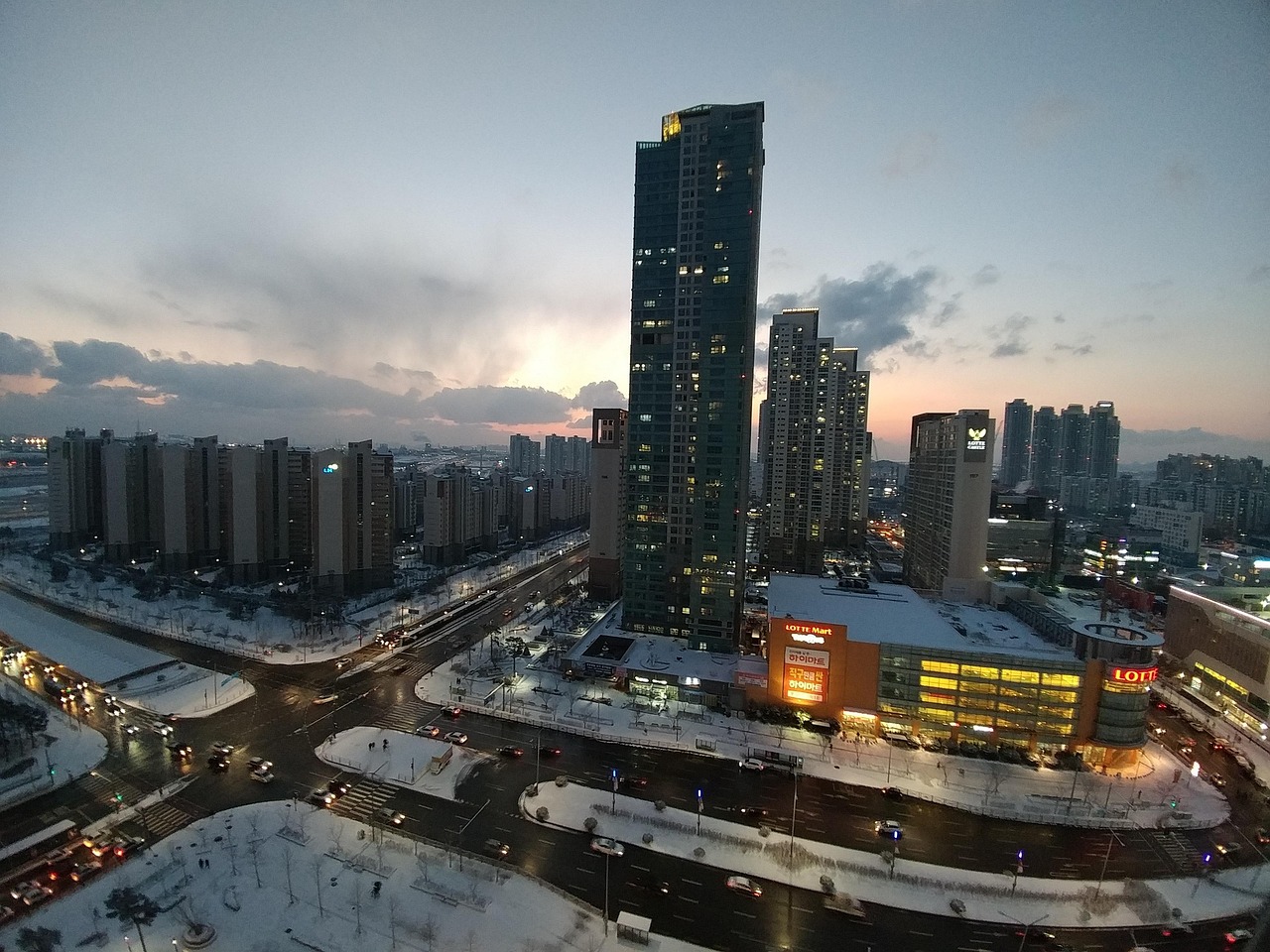
Teaching English in South Korea – Requirements, Jobs & Salary
Overview
Savings, structure, seamless tech — Korea’s standard package piles on perks: free furnished housing, reimbursed airfare, pension refunds, severance pay, and universal health care. Even a public-school salary (₩2.2–₂.8 M) can bank US $8 000+ a year. Expect gig-speed internet, cashless everything, and subways that arrive to the minute. Weekends are compact adventures: hike Seoraksan Saturday, surf in Yangyang Sunday, back in Seoul by dinner. Safe streets, 24-hour cafés, and instant delivery make daily life friction-less, while K-pop, baseball, and jjimjilbang spas keep your social calendar packed.
Core Requirements
- The E-2 visa is the standard visa for foreign English instructors in Korea
- It’s typically issued for 12–13 months and is single-entry until you register in Korea. After arriving, you must obtain an Alien Registration Card (ARC) within 90 days, which then allows multiple entry.
- An E-2 visa is sponsored by your employer and is only valid for working at that specific school. Processing involves your employer obtaining a Visa Issuance Number (about 1–2 weeks) and then you applying at a Korean consulate (visa processing ~5–10 business days).
- E-2 visas are renewable annually in-country. If you switch jobs within Korea, you can transfer or extend your visa/ARC without leaving.
- Local hires: Korean citizens obviously do not need an E-2 visa to teach, but they must meet domestic teacher certification requirements (e.g. a teaching certificate for public school positions).
- A 4-year bachelor’s degree (or 3-year in UK/Commonwealth) in any field is required to qualify for an E-2 teaching visa.
- The degree must be from an accredited institution, and you must provide the physical diploma (or a notarized copy) with an apostille stamp.
- South Korea requires an apostilled diploma as proof of your education – without it, you cannot get the visa. (Canadian degrees go through notarization and Korean consulate verification in lieu of apostille.)
- Note: Degrees not issued in English should be accompanied by a certified translation. Additionally, some employers (e.g. the public school program EPIK) may ask for sealed university transcripts, but these are not immigration requirements per se.
- No formal teaching experience is required for entry-level jobs in Korea – most first-time teachers are welcome.
- However, a 100+ hour TEFL certification is highly recommended, and is in fact required to teach in public schools (EPIK) unless you have a degree in Education or a teaching license.
- You must be a native English speaker holding a passport from one of seven approved countries (US, UK, Canada, Ireland, Australia, New Zealand, or South Africa) to get an E-2 visa . (Non-native candidates with near-native fluency who completed secondary/higher education in an English-speaking country may qualify in special cases, but this is rare.)
- While a TEFL certificate suffices for hagwon (private academy) jobs, certified teachers with a state teaching license and experience can pursue international school or university positions (often under an E-7 visa). Those higher-end jobs typically require 2+ years of experience and relevant subject qualifications.
- A national criminal background check, covering all states/provinces, is required. It must be completely clear and be authenticated with an apostille. For example, Americans need an FBI Identity History Summary (with apostille) that is less than 6 months old .
- The background check should be issued within six months of your visa application; Korean immigration will not accept older certificates. You’ll submit the original apostilled document during the visa process (it will not be returned, so keep copies).
- No exceptions: Even minor offenses or DUI records have caused visa denials in the past. South Korea is strict on criminal history, especially any offense related to children or violence.
- There is no official maximum age for E-2 visa issuance, but public school programs enforce retirement at 62.
- In practice, most E-2 teachers are hired between ages 21 and 40, and schools may be hesitant to hire much older candidates . Older teachers (50s–60s) might find opportunities in rural areas or universities if highly qualified.
- A self-reported Health Statement form is required as part of the visa application. After arrival, all E-2 teachers must undergo a medical examination within 90 days to obtain the ARC. This exam includes a blood test for narcotics and communicable diseases (e.g. TB, HIV) and a urine test for drugs , as well as a chest X-ray and general physical check.
- If you fail the medical test (for example, test positive for drug use or TB), your visa will be canceled and you’ll be required to leave Korea. Routine medications (like blood pressure or cholesterol meds) are fine, but note: Korea has zero tolerance for illegal drugs – even some medications that are legal elsewhere (certain ADHD medications, medical marijuana, etc.) are banned, so verify any prescription meds before coming.
- Offer signed → Apostille your degree and background check (2–3 weeks, since this often involves mail-in processes) → Employer applies for E-2 Visa Issuance Number with Korean Immigration (1–2 weeks) → Once issuance number is issued, apply for the E-2 visa at your local Korean consulate (usually 5–7 working days) → Receive visa, fly to Korea → Complete medical exam and apply for ARC at local immigration (within 30 days of arrival; ARC processing ~3 weeks) → ARC obtained (serves as your residence ID and re-entry permit).
- Up-front cash: ₩2,000,000 (≈ US $1,500) is a reasonable cushion for initial costs. Many schools provide housing and airfare, which helps a lot. However, you should have funds for things like apostille fees, visa application fee (~₩70,000), any housing deposit or utility setup (some schools require a small key-money deposit or you pay utilities upfront), food and transport for the first month, and any personal items. In Korea, you typically get paid monthly and the first paycheck might come 4–6 weeks after you start, so plan accordingly.
Hiring Periods
| School / Employer Type | Main Intake | Secondary Intake | Year-Round / Special Notes |
|---|---|---|---|
| Kindergarten | May – July | Nov – Jan | High turnover → plenty of last-minute ads in Aug & Jan (for immediate starts after holidays). |
| Public School | Apr – Jun | Nov – Dec | Hire in late spring for September term. Smaller second intake if a teacher leaves mid-year. |
| Private School / Bilingual | Oct – Feb | Mar – Apr | Often recruit 6–9 months ahead to secure visas; some mid-year openings around March. |
| International School | Oct – Jan | — | Aligns with global job-fair calendar; offers typically issued very early for August start. |
| University | Oct – Dec (CVs) → Apr/May offers | Nov (rare spring intake) | Longest lead time; hiring for Sept starts. Spring semester hires only if replacements needed. |
| Language Center / Training School | Mar – Apr & Aug – Sept | Jan – Feb | Year-round rolling hires, with peaks before summer and after Chinese New Year. |
| Private Tutoring | Jun – Sept (summer break) | Jan – Feb (winter break) | Rolling demand; families seek tutors during school holidays (winter and summer). |
Popular Locations




Quick Facts
- Capital – 10 M (metro 25 M)
- Subway: 23 lines, T-money everywhere
- ESL pay: ₩2.3–3.0 M; Intl. schools: ₩3–5 M
- K-pop, cafés, & 24 h delivery culture
Climate Snapshot
Humid continental: frigid dry winters (–6 °C lows), cherry-blossom Aprils, hot rainy summers (29 °C highs) with July monsoon, and maple-leaf autumns from late September.
Weekend Getaways
- DMZ/Imjingak: 1 h train – peace-park & observation posts.
- Nami Island: 75 min ITX – tree-lined bike paths.
- Seoraksan: 2 h bus – granite peaks & cable car.
- Busan: 2 h 15 KTX – seaside change of scene.
Monthly Cost Snapshot
- Rent (1-bed city-centre): ₩1.2 M
- Utilities + Internet: ₩180 k
- Groceries & eating out: ₩450 k
- Subway + T-money: ₩75 k
- Total survival: ≈ ₩1.9 M
Why Teachers Pick Seoul
Pros
- Highest Korean salaries + housing
- Best nightlife, cafés, and expat meet-ups
- World-class public transport & internet
- Pension refund & severance bonuses
Cons
- Most expensive Korean rent
- Dense crowds at rush hour
- Competitive job interviews (apply early)
Salary Estimates
Click a row to pre-fill the salary calculator below. The midpoint is used if you’re in “Exact amount” mode.
| Item | Range (KRW) | Range (AUD) |
|---|---|---|
| Private school | ₩2,200,000 – ₩3,500,000 / month | N/A / month |
| Public school | ₩2,200,000 – ₩2,800,000 / month | N/A / month |
| Language center | ₩2,300,000 – ₩3,000,000 / month | N/A / month |
| Kindergarten | ₩2,300,000 – ₩3,200,000 / month | N/A / month |
| International school | ₩3,000,000 – ₩5,000,000 / month | N/A / month |
| University | ₩2,500,000 – ₩3,500,000 / month | N/A / month |
| Private tutor | ₩40,000 – ₩70,000 / hour | N/A / hour |
Cost of Living
Use the cost of living calculator to estimate your potential monthly expenses and savings.
Click on a salary above or enter one manually to calculate your expenses depending on which area you're interested in.
| Item | Range (KRW) | Range (AUD) |
|---|---|---|
| Rent (1-bed, city centre) | ₩900,000 – ₩1,500,000 / month | N/A / month |
| Rent (1-bed, outside centre) | ₩600,000 – ₩1,000,000 / month | N/A / month |
| Utilities (elec + gas) | ₩120,000 – ₩180,000 / month | N/A / month |
| Internet (500 Mbps) | ₩30,000 – ₩40,000 / month | N/A / month |
| Mobile phone plan (5G) | ₩30,000 – ₩60,000 / month | N/A / month |
| Groceries (basic basket) | ₩400,000 – ₩600,000 / month | N/A / month |
| Meal (cheap restaurant) | ₩8,000 – ₩12,000 / each | N/A / each |
| Metro pass | ₩70,000 – ₩80,000 / month | N/A / month |
| Gym membership | ₩50,000 – ₩100,000 / month | N/A / month |
| Total Living Expenses | ₩0 / month | A$0.00 / month |